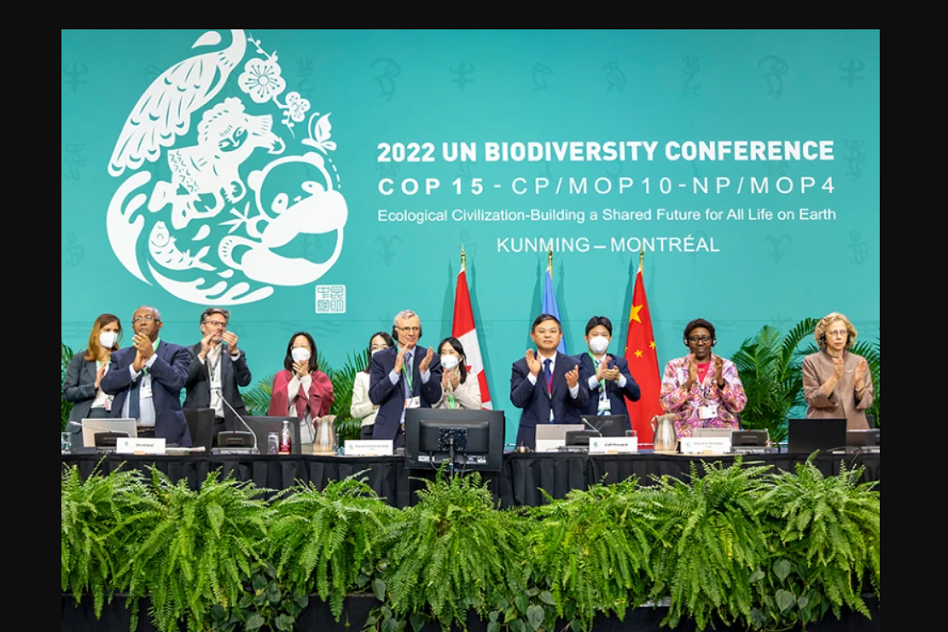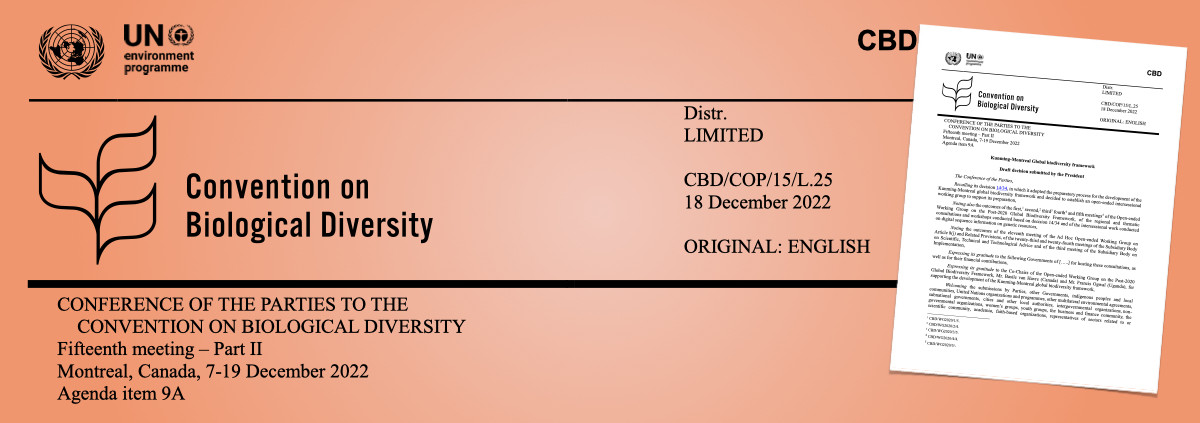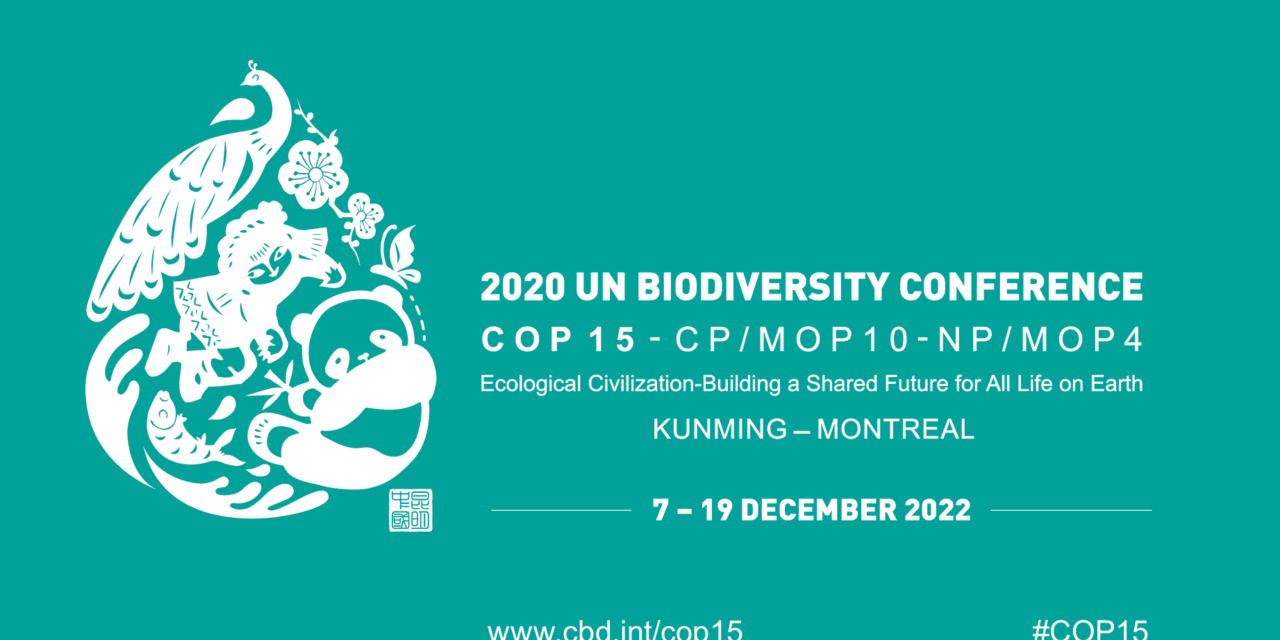More than 190 countries agreed on a hard-fought deal to safeguard nature, as the Kunming-Montreal Global Biodiversity Framework, during the COP15 International Biodiversity Summit (7-19 December 2022). The framework provides a strategic vision and a global roadmap for the conservation, protection, restoration and sustainable management of biodiversity and ecosystems for the next decade. Many experts, stakeholders and participants talked about “a historic moment for biodiversity”. Actually, for the first time, the agreement sets quantitative biodiversity targets, including the following:
- Protect and restore 30% of the world’s land & seas globally by 2030
- Reduce the extinction rate by tenfold for all species by 2050
Find all information, related processes, Goals and targets for 2030 of the Conference Agreement at the official website.
Read here an analytic article from Nature summarising strong points and achievements of the COP and revealing what is missing.

EDUCATION in all its formal and non-formal forms is explicitly acknowledged in the official Decision adopted by the Conference.
Actually various parts refer to education’s vital role in developing/transforming the necessary knowlesge, skills, values and behaviours for protecting biodiversity and the ecosystems, making informed responsible decisions as consumers/waste ‘managers’, boosting innovation, transmitting indigenous knowledge, etc.
- Para 22. Implementation of the framework requires transformative, innovative and transdisciplinary education, formal and informal, at all levels, including science-policy interface studies and lifelong learning processes, recognizing diverse world views, values and knowledge systems of indigenous peoples and local communities.
- TARGET 16: Ensure that people are encouraged and enabled to make sustainable consumption choices including by establishing supportive policy, legislative or regulatory frameworks, improving education and access to relevant and accurate information and alternatives, and by 2030, reduce the global footprint of consumption in an equitable manner, including through halving global food waste, significantly reducing overconsumption and substantially reducing waste generation, in order for all people to live well in harmony with Mother Earth.
- TARGET 21: Ensure that the best available data, information and knowledge, are accessible to decision makers, practitioners and the public to guide effective and equitable governance, integrated and participatory management of biodiversity, and to strengthen communication, awareness-raising, education, monitoring, research and knowledge management and, also in this context, traditional knowledge, innovations, practices and technologies of indigenous peoples and local communities should only be accessed with their free, prior and informed consent.
An entire Section (K) is fully dedicated to “Communication, Education, Awareness & Uptake: … Enhancing communication, education, and awareness on biodiversity and the uptake of this framework by all actors is essential to achieve its effective implementation and behavioural change, promote sustainable lifestyles and biodiversity values, including by. …”
Read the full text of the Conference Decision here
NATURE AND CULTURE
Another imortant decision adopted within COP15 concerns the renewal of the commitment for a Joint Programme on the Links between Biological and Cultural Diversity (find the decision here) as a result of the Nature and Culture Summit.

